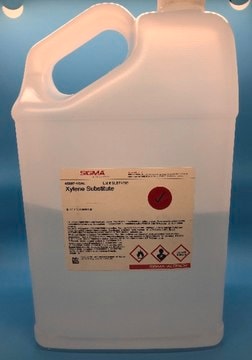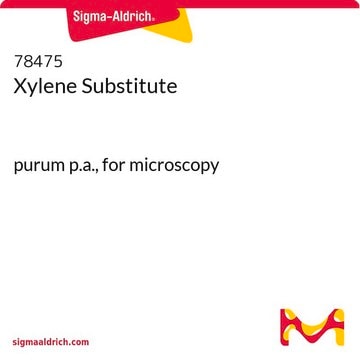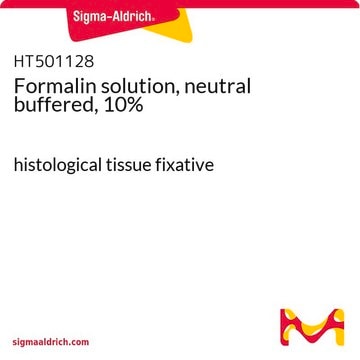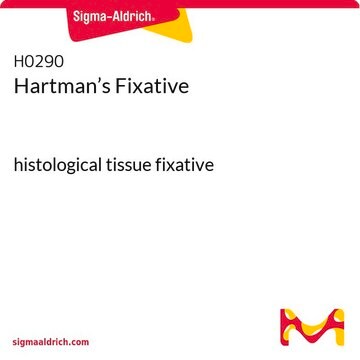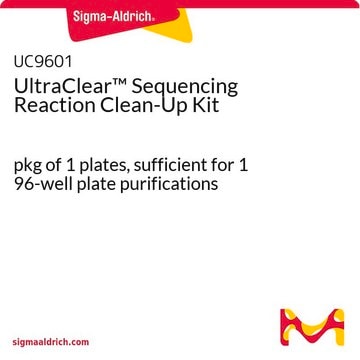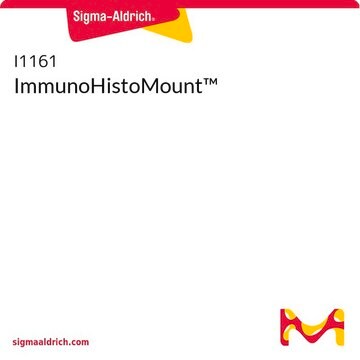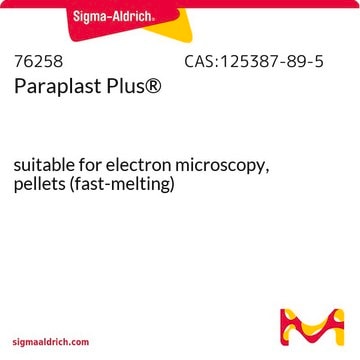H2779
HistoChoice® Clearing Agent
alternative to toluene and xylene
Synonym(s):
dewaxing mixture for paraffin tissue sections
About This Item
Recommended Products
Quality Level
form
liquid
greener alternative product characteristics
Designing Safer Chemicals
Learn more about the Principles of Green Chemistry.
sustainability
Greener Alternative Product
color
colorless
density
0.760-0.820 g/mL
application(s)
hematology
histology
greener alternative category
, Aligned
storage temp.
room temp
General description
We are committed to bringing you Greener Alternative Products, which adhere to one or more of The 12 Principles of Greener Chemistry. This product has Inherently Safer Chemistry, compared to the standard use of formalin for tissue processing.
Application
- It is suitable as an alternative to toluene and xylene for dewaxing paraffin tissue sections. Prepared slides are suitable for antibody probing applications and in situ hybridizations.
- It has been employed in a study to explain the recalcitrance of lignocellulosic plant cell walls to enzymatic degradation.
- It has been used to develop a novel method to improve sensitivity for the localization of miRNA and their target transcripts in plants.
- It has been used to study the correlation of cytoplasmic ADP-ribosylation levels with markers of patient outcome in human cancers.
Biochem/physiol Actions
Features and Benefits
- Non-toxic, non-carcinogenic, and odorless.
- Non-flammable.
- Preserves native antigenic and nucleic acid sites.
- Compatible with many organic mounting media.
- Dissolves wax faster and evaporates slower than xylene.
- Can be used in automated processors.
- Tissues retain their original structure.
Legal Information
signalword
Warning
hcodes
Hazard Classifications
Eye Irrit. 2 - Skin Irrit. 2 - STOT SE 3
target_organs
Respiratory system
Storage Class
10 - Combustible liquids
wgk_germany
WGK 3
flash_point_f
142.0 °F
flash_point_c
61.1 °C
ppe
Eyeshields, Gloves, type ABEK (EN14387) respirator filter
Choose from one of the most recent versions:
Already Own This Product?
Find documentation for the products that you have recently purchased in the Document Library.
Customers Also Viewed
Related Content
Three-dimensional (3D) printing of biological tissue is rapidly becoming an integral part of tissue engineering.
Our team of scientists has experience in all areas of research including Life Science, Material Science, Chemical Synthesis, Chromatography, Analytical and many others.
Contact Technical Service